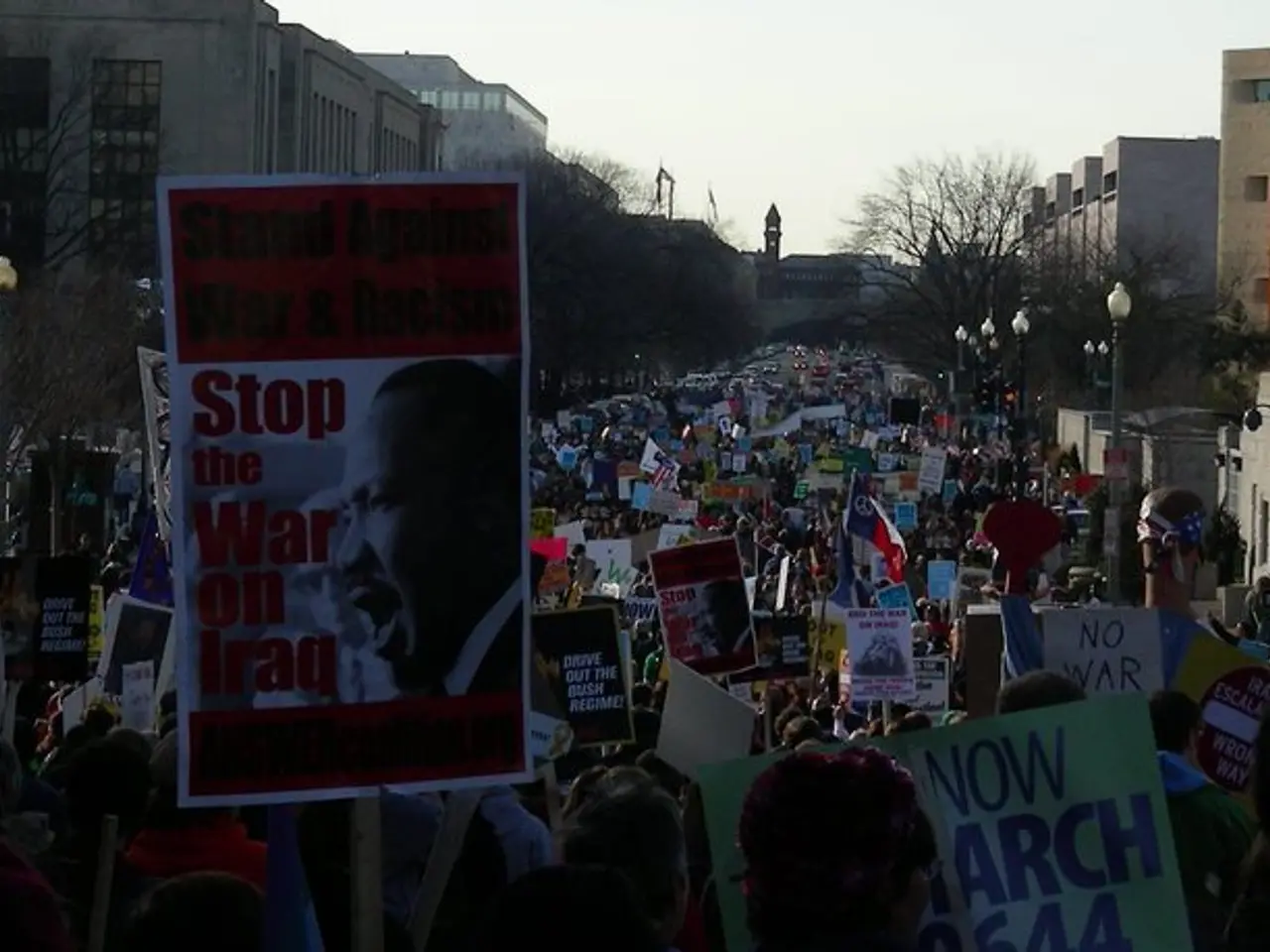Over 520 detentions during a demonstration for a banned Palestinian advocacy group in London - Over 520 individuals detained during demonstration supporting a Palestine-supporting organization that was forbidden in London
In the heart of London, Parliament Square played host to a significant demonstration last week, as the pro-Palestinian group Palestine Action rallied in support of their organisation, which was recently designated as a terrorist group by the UK government.
The designation, enforced under an anti-terror law from 2000, came after members of the group infiltrated an air force base in southern England and sprayed aircraft with red paint. The UK Home Office stated that members of Palestine Action were suspected of planning further "serious attacks" involving "violence, serious injury, and significant damage."
However, the move has been met with widespread criticism from international human rights bodies. Amnesty International, via the short messaging service X, condemned the police's actions at the protest, stating that the arrest of peaceful protesters is a violation of the UK's international commitments to protect freedom of expression and assembly.
The UN Human Rights Chief, Volker Türk, described the ban as a misuse of counter-terrorism legislation, cautioning that this broad application threatens fundamental freedoms and could set a worrying precedent in how protest and dissent are handled legally in the UK.
Amnesty International, along with other human rights organisations such as Liberty and the United Nations Human Rights Office, have criticised this designation. Their response highlighted that the UK’s definition of terrorism is "overly broad," encompassing acts like property damage that fall short of internationally accepted definitions of terrorism, which generally require intent to cause death, serious injury, or to intimidate a population. Amnesty warned that this proscription risks suppressing freedom of speech, potentially criminalizing those who express support for Palestine Action or wear affiliated symbols.
The broader civil society view places this proscription within a larger trend towards an authoritarian approach to protest within neoliberal democracies, warning that such moves undermine democratic rights and risk increasing radicalization by severely restricting legitimate dissent on issues of moral and political urgency, such as Palestine.
Despite the controversy and police actions, demonstrators remained undeterred. Craig Bell, a 39-year-old demonstrator, described the ban on Palestine Action as "absolutely ridiculous." 42-year-old Richard Bull, another demonstrator, stated, "Let them arrest us all. This government has gone too far. I have nothing to hide."
The organization Defend our Juries, which organised the protest, declared, "We will continue." In fact, they have announced plans for the next wave of protests in September.
The protest in London was one of several recent pro-Palestinian protests where numerous arrests occurred. The high number of arrests at the protest, 520, makes it the highest number of arrests at a single-day protest in the UK capital.
This situation illustrates tensions between state security measures and civil liberties, with significant concern from international human rights bodies regarding proportionality and freedom of expression. As the debate continues, the future of protests and dissent in the UK remains uncertain.
- The controversy surrounding the UK's designation of Palestine Action as a terrorist group, under the 2000 anti-terror law, has sparked discussions within the community about the balance between state security and civil liberties, particularly in regards to freedom of expression and assembly.
- Critics, including Amnesty International, Liberty, and the UN Human Rights Office, argue that the broad application of counter-terrorism legislation, such as the one used to ban Palestine Action, risks suppressing free speech and could set a dangerous precedent for the handling of protest and dissent in the UK, especially on moral and political issues like Palestine.







